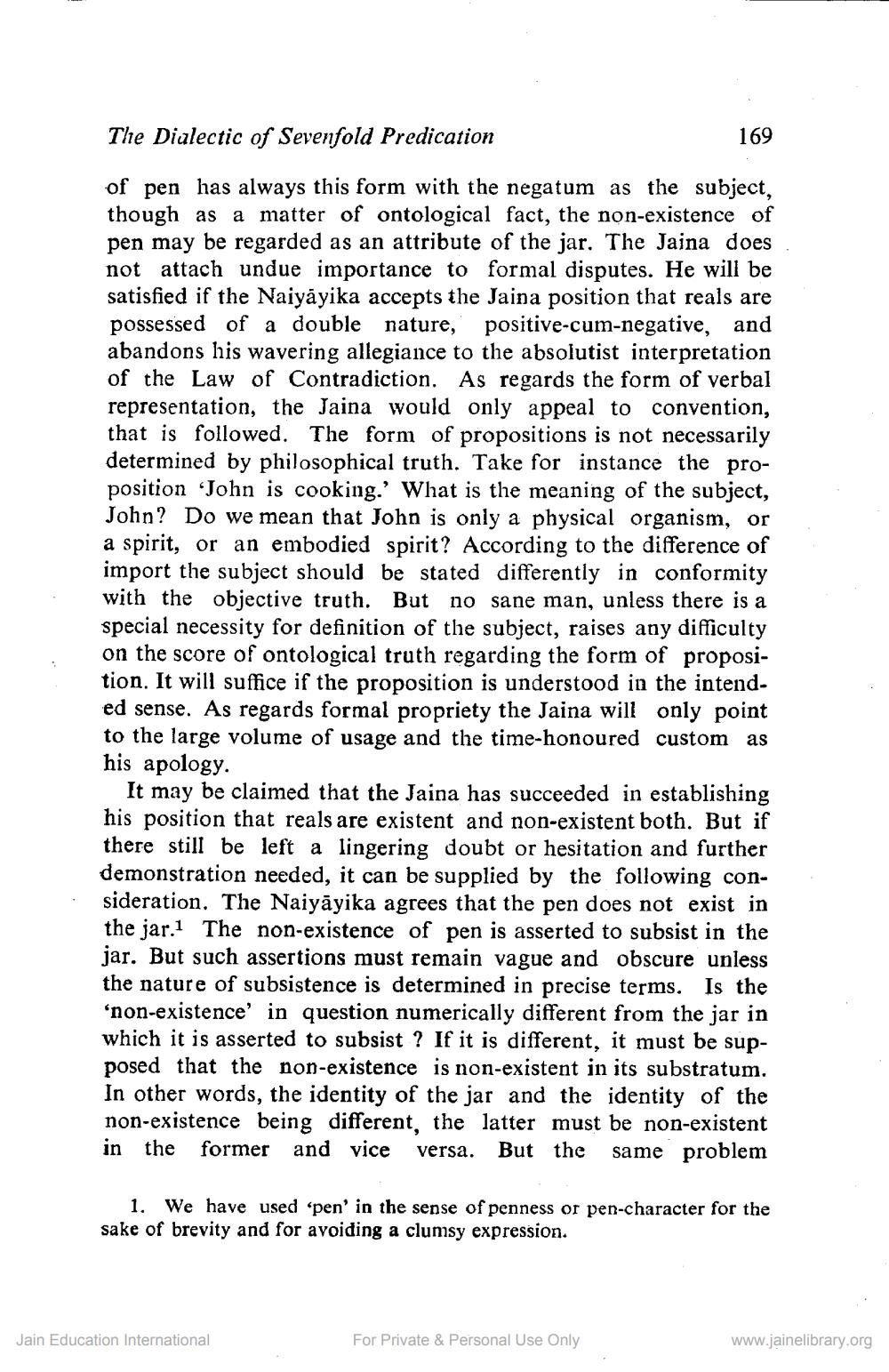________________
The Dialectic of Sevenfold Predication
169
of pen has always this form with the negatum as the subject, though as a matter of ontological fact, the non-existence of pen may be regarded as an attribute of the jar. The Jaina does not attach undue importance to formal disputes. He will be satisfied if the Naiyayika accepts the Jaina position that reals are possessed of a double nature, positive-cum-negative, and abandons his wavering allegiance to the absolutist interpretation of the Law of Contradiction. As regards the form of verbal representation, the Jaina would only appeal to convention, that is followed. The form of propositions is not necessarily determined by philosophical truth. Take for instance the proposition John is cooking.' What is the meaning of the subject, John? Do we mean that John is only a physical organism, or a spirit, or an embodied spirit? According to the difference of import the subject should be stated differently in conformity with the objective truth. But no sane man, unless there is a special necessity for definition of the subject, raises any difficulty on the score of ontological truth regarding the form of proposition. It will suffice if the proposition is understood in the intend. ed sense. As regards formal propriety the Jaina will only point to the large volume of usage and the time-honoured custom as his apology.
It may be claimed that the Jaina has succeeded in establishing his position that reals are existent and non-existent both. But if there still be left a lingering doubt or hesitation and further demonstration needed, it can be supplied by the following consideration. The Naiyāyika agrees that the pen does not exist in the jar.1 The non-existence of pen is asserted to subsist in the jar. But such assertions must remain vague and obscure unless the nature of subsistence is determined in precise terms. Is the 'non-existence' in question numerically different from the jar in which it is asserted to subsist ? If it is different, it must be supposed that the non-existence is non-existent in its substratum. In other words, the identity of the jar and the identity of the non-existence being different, the latter must be non-existent in the former and vice versa. But the same problem
1. We have used 'pen' in the sense of penness or pen-character for the sake of brevity and for avoiding a clumsy expression.
Jain Education International
For Private & Personal Use Only
www.jainelibrary.org




